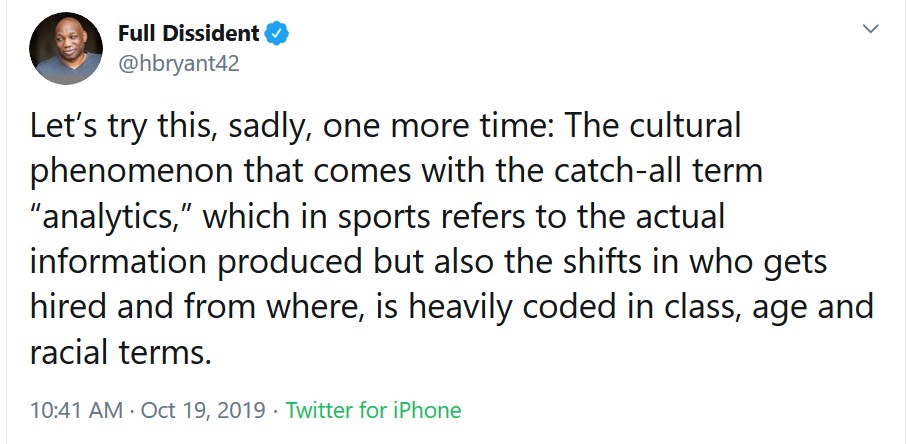Sports Analytics and The Mixed Blessings of Success
Like several INFORMS members, my first interest and exposure to the usefulness of data was through sports. I enjoyed collecting sports cards as a child, and became enamored with trying to figure out which stats meant what, and whether a player was “good” or not.
It has thus been quite satisfying to watch analytics become hugely popular within most sports, and to see analytics practitioners become general managers and respected decision makers. However, also noticeable are two distinct backlashes to the success of analytics in sports. It’s an interesting special case on how the implementation of analytics and its success can lead to new problems for analytics professionals. I’ll give examples below:
The first is that analytics leads to discrimination, especially in hiring or personnel decisions. Howard Bryant, ESPN columnist, started a vigorous debate on twitter this week about this. His point was not that analytics itself was necessarily discriminatory (although some would go that far), but that much of the culture around analytics becomes troublesome. An abbreviated version of his argument is as follows:

The second is that analytics is being applied in areas where it should not be. It’s a bit more difficult to give a direct example of this. One idea is that attributes such as an athlete’s heart, energy, or team chemistry should not measured. Another is that wearable body sensors are too invasive, violating a certain line of body privacy and autonomy for the athlete. The athlete may not be fully informed or consent to how the data is used.
Now, naturally both topics are inherently controversial, and I’m not suggesting I know the answer in either case. I very much enjoyed Serguei Netessine’s post on Responsible Research, and some of the above problems would go away if such guidelines were followed. But I also want to stress that I don’t believe these problems are purely ethical. Some of these are due to the nature of analytics (e.g., using data to rank people, etc.).
The larger, more general question to me is, what types of problems happen in organizations and fields where analytics largely has become a success? Most of us are used to having to vigorously argue that analytics deserves a seat at the table. What happens when that seat is at the head of the table? And most interestingly, how can analytics itself solve (or not solve) the problems that widespread analytics usage may create? How do we model responsible analytics usage, as well, in the classroom as we educate? If you have a presentation on related topics, I’d enjoy hearing about it.


